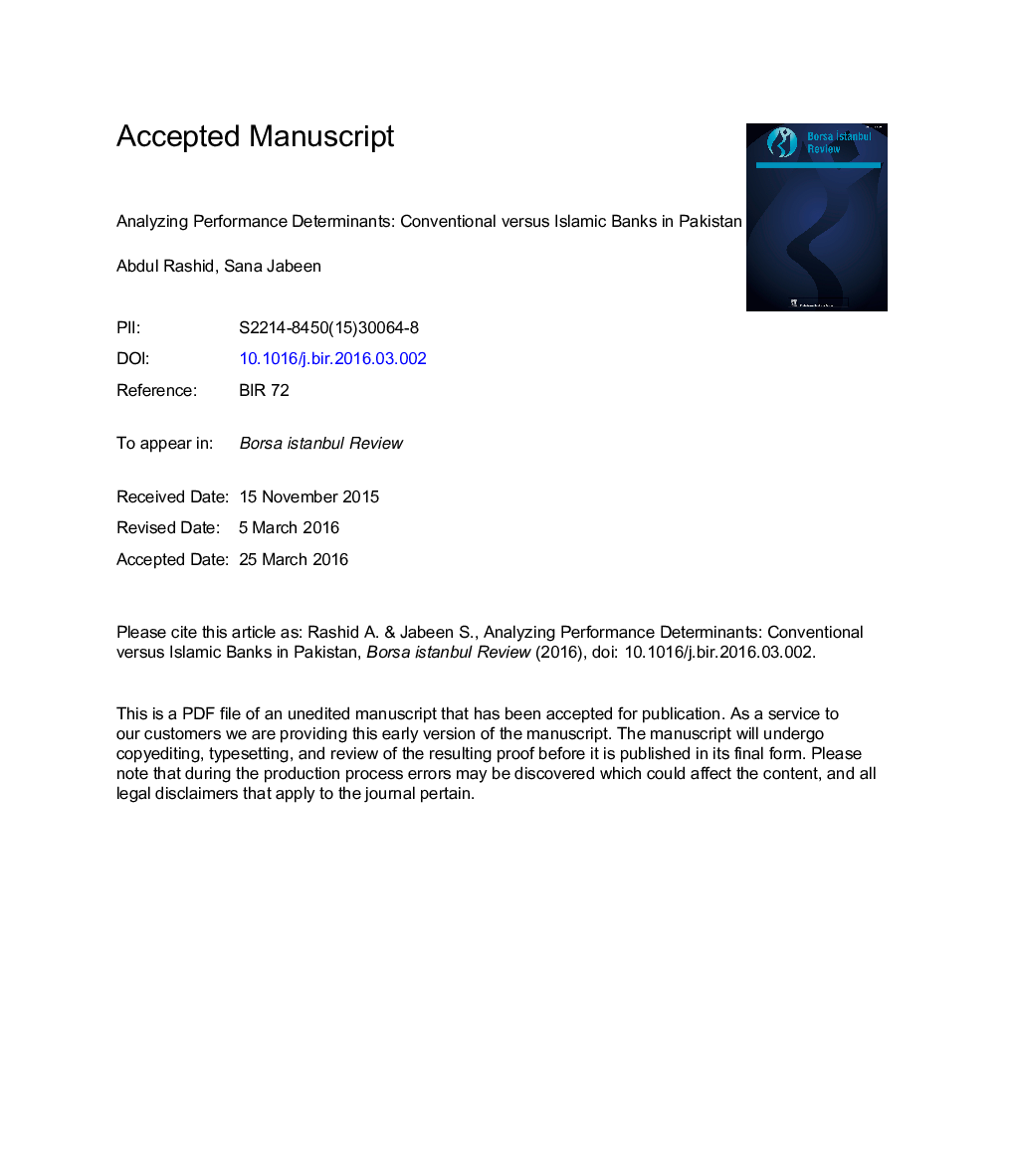| Article ID | Journal | Published Year | Pages | File Type |
|---|---|---|---|---|
| 7341893 | Borsa Istanbul Review | 2016 | 31 Pages |
Abstract
The aim of this study is to empirically examine the bank-specific, financial, and macroeconomic determinants of performance of Islamic and conventional banks in Pakistan. To do this, we first constructed the financial performance index (FPI) based on CAMELS' ratios and then run the computed index on the said determinants. We have used an unbalanced annual panel data covering the period 2006-2012. The GLS regression results show that operating efficiency, reserves, and overheads are significant determinants of conventional banks' performance, whereas, operating efficiency, deposits, and market concentration are significant in explaining performance of Islamic banks. We also show that the impact of GDP and the lending interest rate on performance is negative for both types of banks. Bank managers may focus on controlling overheads and operating costs to improve performance because, according the empirical results presented in the study, both of these variables are negatively related to the FPI. Our results suggest that advancements in overall management practices and new standards in operating efficiency and financial risk management are essential to enhance performance of banks.
Related Topics
Social Sciences and Humanities
Economics, Econometrics and Finance
Economics and Econometrics
Authors
Abdul Rashid, Sana Jabeen,
